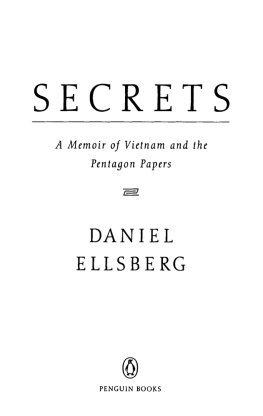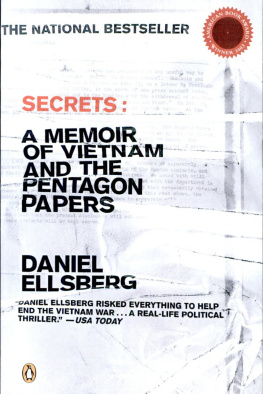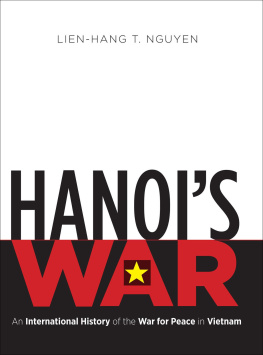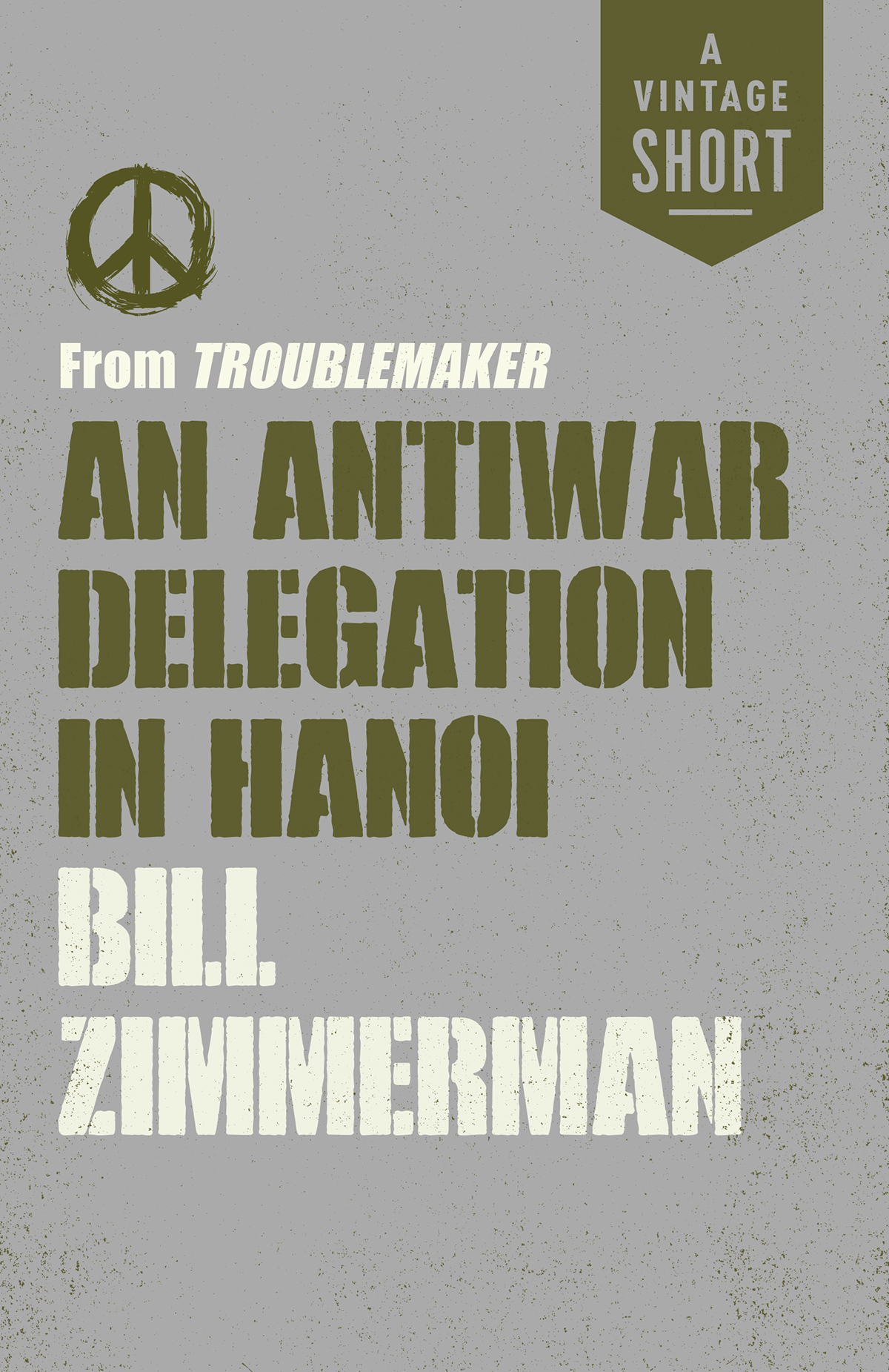Contents
An Antiwar Delegation in Hanoi
from Troublemaker
by Bill Zimmerman
A Vintage Short
Vintage Books
A Division of Penguin Random House LLC
New York
Copyright 2011 by Bill Zimmerman
All rights reserved. Published in the United States by Vintage Books, a division of Penguin Random House LLC, New York, and in Canada by Random House of Canada, a division of Penguin Random House Canada Limited, Toronto. Originally published in hardcover in the United States by Doubleday, a division of Penguin Random House LLC, New York, in 2011.
Vintage and colophon are registered trademarks of Penguin Random House LLC.
The Cataloging-in-Publication Data for Troublemaker is available from the Library of Congress.
Vintage eShort ISBN 9780525562696
Series cover design by Cardon Webb
Cover image sunshiny/Shutterstock
www.vintagebooks.com
v4.1
a
Bill Zimmerman
Bill Zimmerman, who holds a doctorate in psychology from the University of Chicago, is one of the nations most experienced political consultants. As cofounder of the leading consulting firm Zimmerman & Markman, whose work for ballot initiatives and for organizations such as the ACLU, NRDC, and MoveOn.org has won multiple awards, he continues to advocate for social justice.
A LSO BY B ILL Z IMMERMAN
Troublemaker
Airlift to Wounded Knee
Is Marijuana the Right Medicine for You?
Contents
The FBI and the CIA had spied on antiwar activists and used undercover agents to infiltrate our organizations for many years. Our overheated revolutionary rhetoric was only their most recent excuse. They tapped our phones, read our mail, followed our travels, and did whatever they could to sabotage our work. Years later, after passage of the Freedom of Information Act, many of us obtained heavily redacted files they had maintained on us. The surveillance outlined in my file began in Chicago during the 1966 sit-in.
Those of us who had attracted press attention or were in leadership positions routinely assumed that our movements and communications were monitored, and not just by the feds. Police departments in New York, Los Angeles, and Chicago had red squads that did the same. None of this was legal, and vast sums of taxpayer money were wasted in the effort. Undercover provocateurs often advocated violence to discredit the naive activists who accepted their advice and to justify the use of force against them. These official provocateurs also instigated factional disputes, disrupted meetings, falsified documents, and stole money.
We employed various countermeasures against them. Anyone advocating violence was assumed to be a police agent and isolated. When we had to discuss confidential information, we did it in a noisy restaurant or a car with the radio volume turned up to thwart bugs. When we had to make plans over the telephone, we assumed our home and office phones were tapped and talked pay phone to pay phone. I always carried the numbers of several pay telephones near my home or office. When I traveled, I picked up the numbers of a few pay phones close to wherever I stayed. We would ask people to return our calls from a pay phone on their end to a pay phone on ours because the police could not tap into the lines fast enough to monitor our conversations.
As a result, when Ethan Signer asked me to meet him at a noisy bar in Cambridge, I knew something was up. Neither of us spent much time in bars. Sitting opposite him, I immediately saw the excitement on his face. An anonymous scientist had contacted him. The pharmaceutical company where the scientist was employed had just developed a new form of penicillin that did not require refrigeration. I looked quizzically at Ethan, not understanding why this news required a confidential meeting.
Ethan explained the battlefield implications. Helicopters rescuing wounded American soldiers were equipped with small refrigerators to preserve their antibiotics. The Vietnamese they fought against did not have portable refrigerators, and many died from infections that could be prevented by quick access to fresh antibiotics. The anonymous scientist knew that thousands of lives could be saved if Vietnamese medics on the ground carried a broad-spectrum antibiotic that did not require refrigeration. He knew of Ethans involvement in the antiwar movement and offered to steal a sample of the new antibiotic if Ethan could deliver it to the right people in Viet Nam. An unlimited amount could be cultured from the sample.
Unlike the medical relief proposed by Coras committee, which would benefit civilians, this would aid the Vietnamese military. Was it the right thing to do? On the one hand, it might prolong the war by saving the lives of enemy troops; on the other, helping the Vietnamese survive the American war was precisely our objective. The new antibiotic would not directly jeopardize American troops, since the beneficiaries were already wounded and at least temporarily out of action. We had to consider the legal implications, too. At best, we would be receiving and transporting stolen goods; at worst, passing them to an enemy in a time of war.
It didnt take long to decide that the chance to save so many lives outweighed our reservations and fears. But we had to be smart about what we did. We agreed that Ethan should not make the delivery to the Vietnamese. There was a small chance that the offer was a setup designed to entrap him. It was also possible that the FBI knew of the pharmaceutical scientists plans and was simply waiting for him to move. If Ethan kept my identity from the scientist and I made the handoff, we would have some protection. We had both met several Vietnamese health officials in Paris two months earlier. If I went to Paris on some pretext and delivered the goods to them without being observed, we could escape detection even if it was a setup. It was a good plan. Ethan told the scientist he could arrange delivery.
The pretext for a Paris trip came easily. My father, Sid, was about to celebrate his eightieth birthday. We had been close during my childhood, but because of civil rights and Viet Nam we had drifted apart. Previously, we had argued intensely about the war. He was a successful immigrant. The United States had saved him from the Nazis, who had killed one of his sisters and other members of his family. As a result, he was unquestioningly patriotic. Before I was born, he had spent a lot of time in the South as a traveling salesman and had picked up racist attitudes toward African Americans, another arena of passionate dispute between us. When my sister, Robin, married a black man, she felt unable to reveal it to him. I had stood by her side at the wedding. However, more recently, Sid had come to see the war as a mistake. And for a man his age, he was also making a valiant effort to overcome his racism and befriend my sisters husband and his family. I wanted to recognize these changes and do something special for him. An overseas trip fit the bill.
After fleeing Vienna in 1910, Sid had never been back to Europe. I called him in Chicago, and because I wanted the FBI to listen, I used the telephone at home in Somerville. I told him that in honor of his eightieth birthday I wanted to take him to Europe and Israel, a country he had always wanted to see. We would spend a few days each in London, Paris, and Vienna, and then a week in Israel. He was thrilled and grateful, his voice breaking as he thanked me, not only for the trip and the recognition of his birthday, but also because we would be traveling together for the first time in years. I was glad to make him happy, but hopefully it also looked like harmless tourism to the FBI.



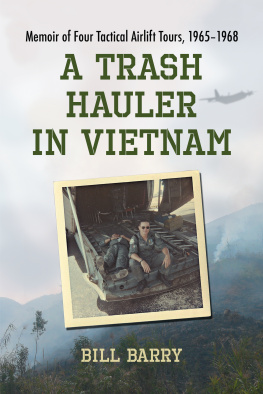
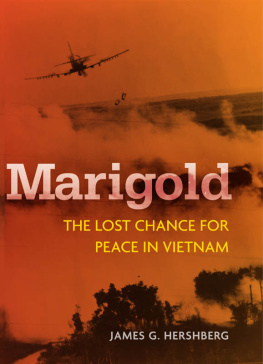
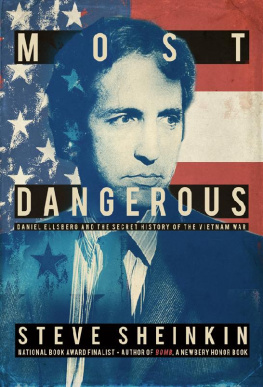

![Thompson Dr Wayne - To Hanoi And Back: The United States Air Force And North Vietnam 1966-1973 [Illustrated Edition]](/uploads/posts/book/150424/thumbs/thompson-dr-wayne-to-hanoi-and-back-the-united.jpg)
